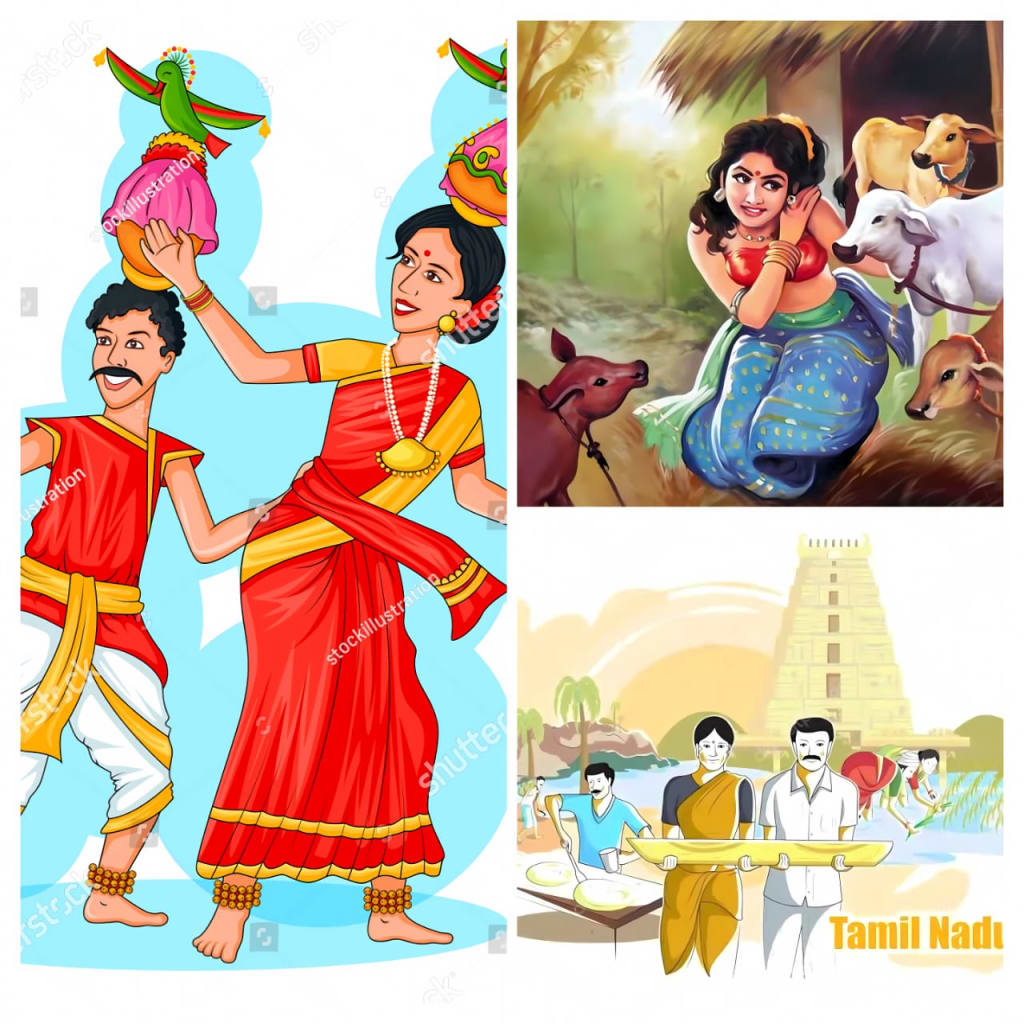Tamil culture
Culture of Tamil: A Tapestry of Tradition and Fortitude

introduction
A rich history and persistent traditions have impacted Tamil culture over millennia, creating an enduring and colourful tapestry. The Tamil ethnic group, which has roots in the Indian state of Tamil Nadu and some regions of Sri Lanka, has made significant contributions to politics, religion, literature, and the arts. This article delves into the different facets that give Tamil culture its distinctive and significant characteristics, tracing its origins from antiquity to the present.
Origins in Antiquity: Tamil culture has roots that go back more than 2,000 years to South India's classical era. The lush river valleys of the Kaveri and Vaigai rivers served as the core of the early Tamil civilization, where they built complex urban centers and conducted trade with cultures like the Greeks and Romans.
Tamil Language and Literature: The Tamil language, one of the world's oldest classical languages still in use, is the foundation of Tamil culture. Tamil literature displays the talent of Tamil poets, scholars, and authors and ranges from Sangam literature to contemporary works. Some of the best poetic compositions, which honor love, nature, and ethics, came from the Sangam period.
Tamil Nadu is known as "The Land of Temples" and is the location of numerous spectacular temples that showcase Dravidian architectural design. Temples like the Brihadeeswara Temple in Thanjavur and the Meenakshi Temple in Madurai are prominent examples of the Tamil religious history and draw both pilgrims and tourists.
Classical music and dance are highly valued in Tamil culture, particularly Bharatanatyam dance and Carnatic music. With numerous works devoted to Hindu deities and themes, these performing arts have strong spiritual ties.
Festivals and Celebrations: Tamil Nadu is well known for its vibrant festivals and celebrations, which provide a window into the passion of the populace's religion and culture. Several significant holidays, including Pongal, Tamil New Year, and Navaratri, unite communities in joyful celebration.
Tamil Folk Traditions: Tamil culture has a rich tapestry of folk traditions that extend outside of urban areas. Tamil culture is exhibited through folk music, dance styles like Karagam and Kolattam, and rural arts like Therukoothu.
Tamil Cuisine: Tamil cuisine is a fusion of exotic flavors and aromatic spices. The agrarian roots of the area may be seen in the mouth-watering traditional South Indian meals that are served on banana leaves.
Influence on Southeast Asia: Tamil culture had a significant influence on Southeast Asia that went well beyond the Indian subcontinent. Language, literature, and religious customs were introduced by Tamil traders and settlers to places like Sri Lanka, Malaysia, Singapore, and Indonesia.
Tamil Diaspora: In contemporary times, the Tamil diaspora has significantly contributed to the preservation and global promotion of Tamil culture. The Tamil diaspora has built cultural institutions and is actively promoting Tamil arts and traditions, especially in nations like Canada, the United Kingdom, and the United States.
Socio-Political Movements: Tamil culture and socio-political movements are closely related. The Dravidian movement, which influenced Tamil Nadu's politics and government in the early 20th century, placed a strong emphasis on the preservation of Tamil identity and language.
Tamil Cinema: Tamil cinema, also referred to as Kollywood, has significantly influenced Tamil culture and other cultures as well. The business has produced top-notch directors, performers, and technicians, and its movies have been seen by audiences all over the world.
Modern Challenges and Preservation: Due to urbanization and globalization, it has become more difficult to preserve Tamil culture. However, a number of institutions, academics, and creatives are committed to preserving and advancing Tamil culture.
Conclusion:
The tenacity and inventiveness of the Tamil people throughout history are reflected in Tamil culture. The Tamil identity has continued to be strong and important throughout history, from ancient civilisation to the current diaspora. The culture's language, literature, art, and customs live on and have a lasting impact on the global cultural landscape. The fabric of Tamil culture will definitely remain as Tamil Nadu and its international community embrace the future, preserving the legacy of a really great civilization.
About the Creator
Enjoyed the story? Support the Creator.
Subscribe for free to receive all their stories in your feed. You could also pledge your support or give them a one-off tip, letting them know you appreciate their work.





Comments
There are no comments for this story
Be the first to respond and start the conversation.